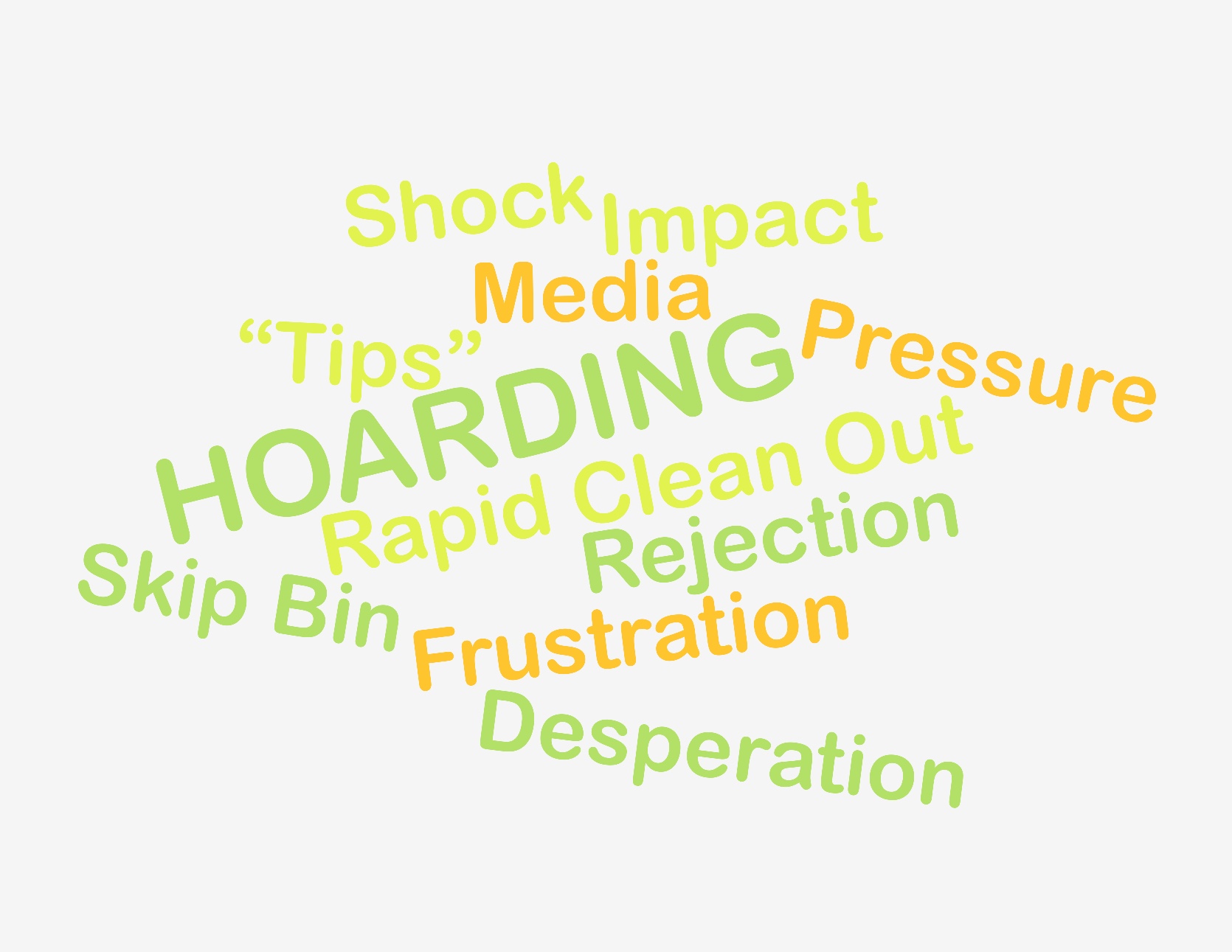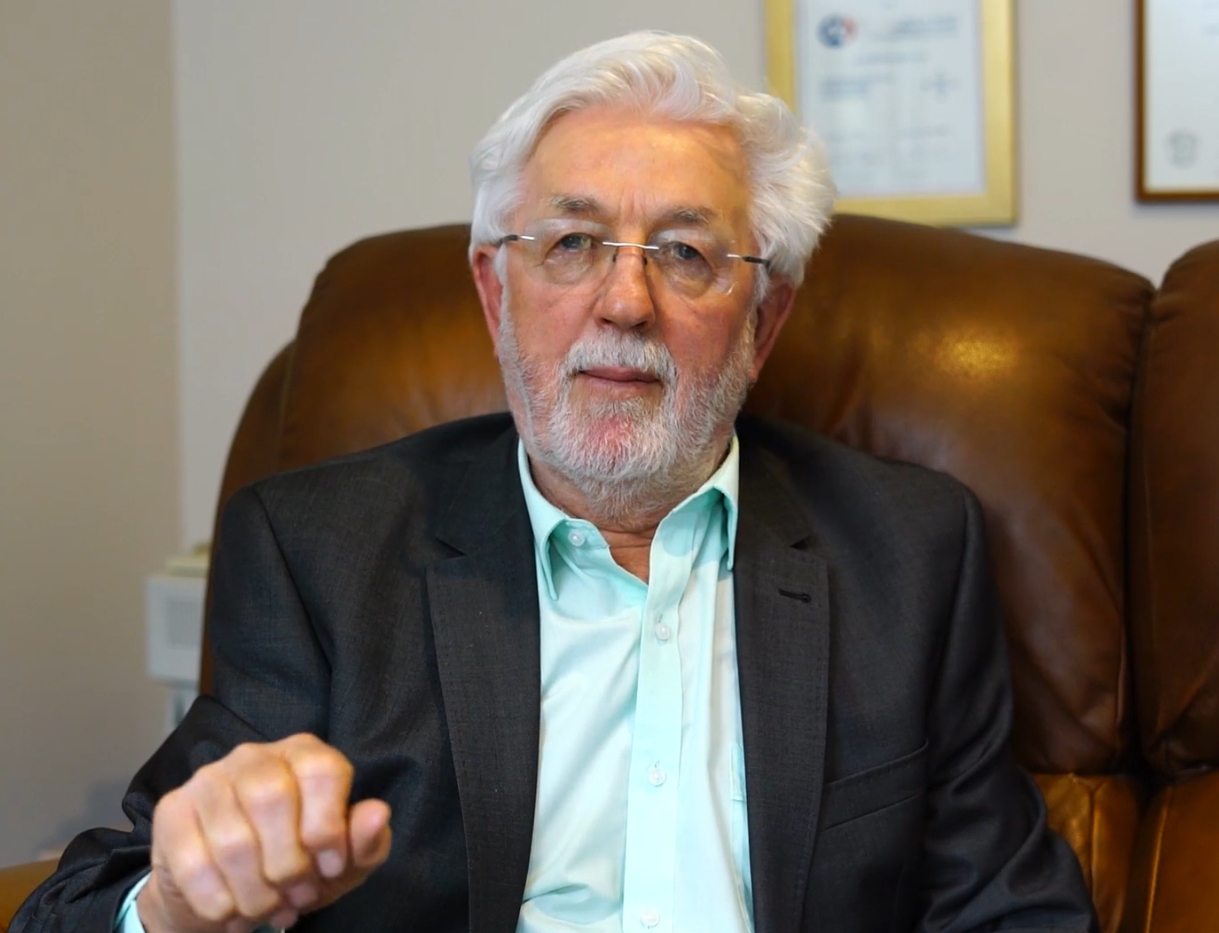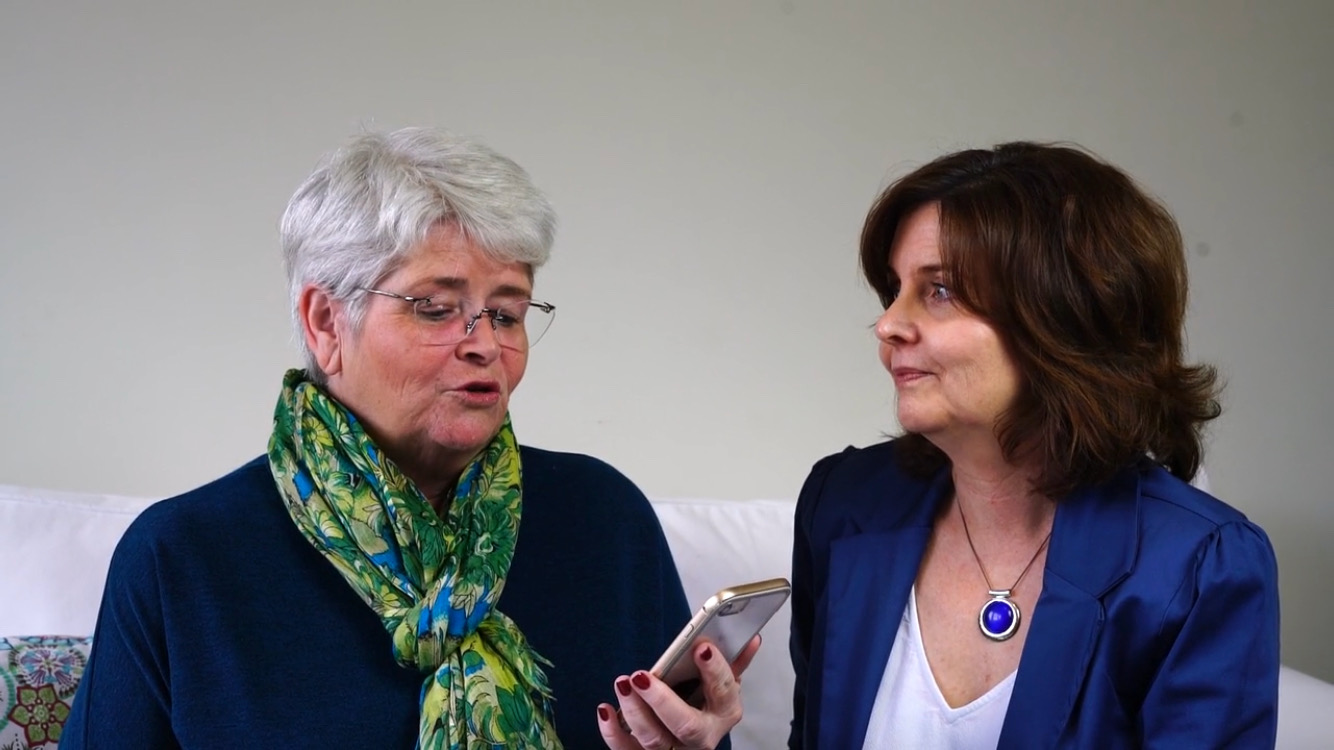We mentioned the Head to Health website for resources.
And take a look at our training for more practical strategies.
Transcription from the Video
AE: Hi I’m Angela Esnouf.
WH: And I’m Wendy Hanes. We are coming to you from Melbourne, Victoria.
You may think that because we’re not allowed to work with people in their homes there is nothing we can do to address hoarding and squalor issues. That is not the case! In this video blog we look at Support, Motivation and Accountability
AE: Hoarding isn’t about the clutter. The clutter is the symptom of a more serious underlying issue. If we can treat the underlying issue, we can alleviate some of the potential problems. Even when we can’t get into the house or meet face to face.
People get quite concerned about getting inside the property in order to make a difference, but helping someone to manage their anxiety might make the biggest difference of all.
This is a great time to connect people with mental health support because one reason people who hoard resist assistance is because they are reluctant to have someone in their home. Out of shame or fear that we will throw things away. There’s no risk of that at the moment! They may also be reluctant to be labelled.
WH: The wealth of telephone services that have been fast tracked due to COVID gives people an unprecedented opportunity to engage with mental health services on their own terms:
- There is a perceived degree of anonymity.
- They don’t have to attend and appointment, or even get dressed.
- They can speak about the anxiety rather than a hoarding problem.
The Head to Health website is a great way to view a comprehensive range of mental health services that are available.
AE: Lets talk now about Accountability and Motivation
Simply identifying goals and activities is not enough. And telling people what they need to do seldom works. To encourage action, highlight an area for improvement to the tenant and ask them what they would be prepared to do. Let them identify something they would like to commit to.
Ask, “What would a good outcome look like?”
“What would the first step be?” is another good question. Encourage manageable steps, particularly if you feel like the person is a perfectionist or has all or nothing tendencies.
WH: You will need to be prepared to invest time into these conversations and you may head off potentially bigger and more time-consuming problems down the track.
Your hands aren’t tied. You can take positive steps even in these circumstances.
AE: Take a look at our online training. We share practical strategies to keep people safe, healthy and comfortable.
View Part 1 and Part 2 in the Making Progress During COVID video blog series.








